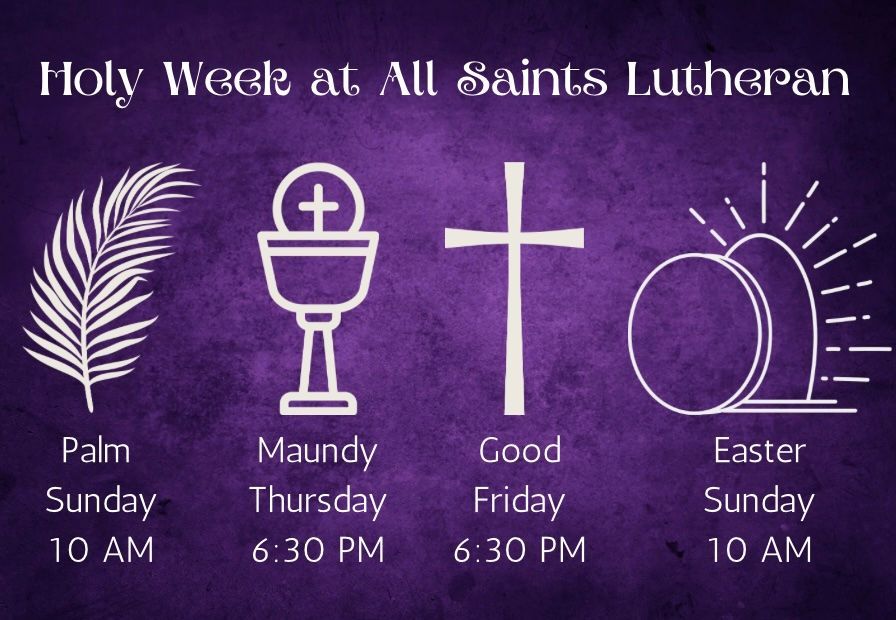Feast of the Transfiguration, March 2, 2025
This week,
I overheard a phone conversation
between Pastor Jennifer
and our nephew.
He’s a very bright kid,
needs to keep his hands busy,
as well as his brain.
“Auntie,”
he said,
“did you know the Statue of Liberty
used to be bronze?”
“Do you mean copper?”
she asked.
“Yeah, copper.”
he replied,
“And now because of a chemical reaction
with the weather,
it’s all dull and green.”
“That’s right,”
Jennifer replied,
“it’s not new and shiny anymore is it?”
“No, it’s not.
It looked better the other way.”
Since he’s 9 years old
and the Statue of Liberty
was gifted to the US by the government of France
in 1886,
I’m not sure how he knew it looked better before.
We are receiving two new members today
by Affirmation of Baptism.
In the 3½ years I’ve been the pastor here,
we have received 3 members by letter of transfer,
one by baptism,
and one by transfer from inactive to active.
And now,
these two here today.
We have had quite a number of visitors
over the years.
I often get to see new visitors
in the narthex before worship
as they interact with our regular crowd.
I often don’t get to share a table with them
during the fellowship meal,
because new visitors are usually at a full table
by the time I make it to the Fellowship Hall after worship.
In these interactions with our members,
I often hear a lot of pleasantries,
the normal, cordial sort of stuff:
“Where are y’all from?”
“Did you just move here?”
“What do you do for work?”
But I have also heard some stuff
that makes me want to hide under a pew,
the sort of stuff that,
the equivalent of which,
would end a first date
with no hope of a second one.
More than once,
from more than one person,
I have heard our members say
to first-time visitors,
“We Lutherans like to sit in the back,
so you can probably find a seat up front.”
“Don’t worry about sitting in someone else’s seat;
most of the pews are empty most of the time
anyway.”
“Yeah, we used to be 400 members,
but this is us now.”
Quite the first impression.
I am not naming any names,
and as I said,
I have heard these and similar statements
multiple times,
from multiple people,
over the years.
Glory fades.
It would be so nice
to string along
from glory to glory,
from victory to victory,
from mountaintop to mountaintop.
But that isn’t where the majority of our lives are lived.
Glory is like a burst of lightening;
flash and thunder,
a mix of awe and terror,
and then it’s gone.
Only traces remain.
Racing hearts,
hair standing on end—
or a wake of destruction.
When Moses ascended the mountain
to meet with the Lord,
the radiance he had first seen
set a bush ablaze
without consuming it
shone from his face.
The Israelites were afraid to look at him
and he had to wear a veil over his face.
But like the Statue of Liberty,
as time passed,
so did the shine.
When Jesus took Peter, James, and John
up the mountain
he was transfigured before them,
holding court with the prophets of old.
Sleepy, big-mouthed Peter says,
“It is good for us to be here.
Let’s build a camp and stay.”
It is not Jesus, Moses, Elijah,
or the other disciples
that respond to Peter’s suggestion,
but a voice from a cloud—
the cloud that led the Israelites by day,
the cloud that swallowed the summit
when Moses met with God,
the cloud that brought a chariot of fire
to sweep Elijah into the presence of God
without tasting death.
This voice says to the disciples,
“This is my Son, my Chosen,
listen to him.”
And then it was all over.
Moses,
Elijah,
the cloud,
the voice,
and the radiance,
all gone,
Only the traces remained.
It’s the traces
that haunt us now.
The traces of a youth ministry
that was once filled with our own kids.
An empty nursery,
Sunday School space
occupied by renters.
We have kneelers in the pews
and a rail at the altar
because our knees used to let us use them.
We have projectors and screens,
hand-held mics,
and a keyboard
because we used to have the volunteers
to have regular band
and more contemporary music.
We have a sanctuary this size
because, yes, we used to seat 400 worshipers
on a given Sunday.
And none of those things changed
because we wanted them to.
None of those things changed
because we were ready to move on.
None of those things changed
because we were unfaithful, ungrateful,
or unwilling to carry on.
All of those things changed
because change is the very nature of reality.
Who among us
cannot relate to Peter?
Who doesn’t share his sentiment?
It is good to be here.
I wish we could come here,
meet with Jesus,
share the experience with each other,
and nothing would ever change.
But that’s not how this works.
Moses didn’t stay on the mountain.
Moses came down the mountain
because the people needed to hear from God.
Jesus didn’t stay on the mountain.
Jesus came down the mountain
because the people who needed his ministry
weren’t on that mountain.
Jesus came down that mountain
because a desperate father
and a suffering son
needed deliverance.
Jesus came down that mountain
because a desperate people
and as suffering world
needed death to be defeated
and resurrection to be realized.
God cares about those in the valley.
We have tried to stay on this mountain
for far too long.
The glory has faded
and the cloud dispersed.
The shine has dulled.
We keep trying to get folks
to show up and marvel with us
at the traces, at the remnant,
at the historic marker
where the glory used to be.
We keep trying to recruit folks
to our historical re-enactment troupe,
hoping they’ll keep fighting old battles with us.
But Jesus has left the mountain.
Jesus has gone on ahead
to find the hurting,
the grieving,
the desperate.
Jesus expects us to follow him,
and he won’t wait for us.
We can keep trying to interest folks
in our faded glory,
or we can follow Jesus down the mountain.
We can meet our neighbors where they are,
we can know their needs—
and their names—
and we can become the kind of fellowship
that frees our neighbors from all that holds them captive.
The truth about the Statue of Liberty
is that the patina on the copper
is the natural state of copper.
The shiny, polished state
is unnatural.
The shiny, polished state
is somehow less real.
The call to follow Jesus
is the call to live in reality
as it is—
not as we wish it was,
not as it used to be,
not in its shiny, polished state,
but in all its demonic, frothing, desperate reality.
To follow Jesus
is to speak truth to power,
and especially when that power lies.
To follow Jesus
is to take the side of the oppressed,
the side of the invaded,
the side of the demonized,
the side of the refugee,
the side of the immigrant—
and to call out the faithlessness and perversion
of the oppressor,
of the invader,
of the demonizers,
of the colonizers,
of the nationalists.
Glory fades
because change is the natural state of reality,
and reality as it is
is the enemy those who would use your longing
to make reality glorious again
to seize you
and keep you down.
Jesus has come down the mountain
to show us reality as it is,
to show us that the God of the mountain
is still God in the valley.
Will we linger here,
seized and held down
by the spirit of our former glory?
Or will we follow Jesus?










